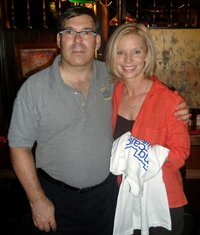Nobody thinks they’re bad storytellers, but most of us are.
There was a great article at the Harvard Business Review over the summer about how the people at TED help their presenters tell better stories. It helped me do a better job of editing my own writing and storytelling. You can get the PDF of the whole article here.
The first, and I think best, piece of advice that Chris Anderson shares is the importance of framing the story.
There’s no way you can give a good talk unless you have something worth talking about. Conceptualising and framing what you want to say is the most vital part of preparation.
We all know that humans are wired to listen to stories, and metaphors abound for the narrative structures that work best to engage people. When I think about compelling presentations, I think about taking an audience on a journey. A successful talk is a little miracle—people see the world differently afterward.
If you frame the talk as such, the biggest decisions are figuring out where to start and end.
The emphasis above is mine, because I never thought about storytelling with those constraints before, at least not explicitly. It forced me to rethink some of the stories I have told that were received well and others that missed the mark. Everything from cocktail party stories to job interviews.
Many of the best talks have a narrative structure that loosely follows a detective story. The speaker starts out by presenting a problem and then describes the search for a solution. There’s an “aha” moment, and the audience’s perspective shifts in a meaningful way.
This small snippet had me rethinking the way I communicate with clients. What about those dry monthly reports? There’s no doubt those could be better.
Think about your presentation first without any supporting assets. What if you had no slides, no microphone and no music – could you still hold the audiences attention?

Martin while riding across the US raising money
My goal for the next few months is to help Martin hone his story down to 18 minutes of non-story awesome. Martin just launched a new website (actually a few websites), and some TEDx exposure could help change the way cancer research is funded.
Here’s the TD;DR. version: Right now cancer research is funded by huge, slow-moving, conservative corporations and governments. They tend to reward small, incremental advances. Martin’s idea is to crowd-source cancer research. You fund whatever you want, specific paths, specific scientists, specific ideas. You want to spend your $100 on a million to one shot, great. Want to convince your 10 friends to do the same, better. Think Dr. X has the cure for cancer in some far flung lab but can’t get funding, fund her!
The idea is genius, but the story of how he got there is even better.
I need your help. Will you be willing to watch some videos as Martin’s story gets rehearsed over and over again? How about attending some of the sessions in person? If you are willing, just leave a comment below and we’ll contact you.
I’d be proud and pleased to help, Phil. I saw the recommendation from Mark Traphagen, who recently assisted me on a project. I have considerable presentation experience (Toastmasters, Intl.), and I work as a freelance writer/copywriter.
Glad to have your help Don! I’ll keep you in the loop.
Count me in, in some way or another please. Both because I do a lot of presenting/teaching professionally & I’d love to see what I could learn, & also because I appreciate the topic & keep up with related issues (I run a G+ community group on Radical Life Extension & believe things like collaborative crowdsourcing, inducement prizes, etc. will play a significant role for it.)
Michael Atkinson
Thanks Michael, I look forward to your feedback.
What a great quote “A successful talk is a little miracle – people see the world differently afterward” then again, I’m a big TED Talk fan, so most everything from their camp is OK by me
Hello ,
I heard about a great MOOC (free university online courses, for everybody) entitled “The future of storytelling”, and I wanted to share the good news with everybody interested in storytelling.
The MOOC will be about :
• storytelling basics,
• serial formats (on the TV, web and beyond),
• storytelling in role-playing games,
• interactive storytelling in video games,
• transmedia storytelling,
• alternate-reality gaming,
• augmented reality and location-based storytelling,
• the role of tools,
• interfaces and information architectures in current storytelling.
The course starts on October 25th, 2013, so enrol now and don’t forget to share the good news with your friends
You can follow this URL to to discover the course and/or enrol : https://iversity.org/courses/the-future-of-storytelling?r=14bd5
May be I’ll meet other readers of New Media Leaders in the MOOC?!